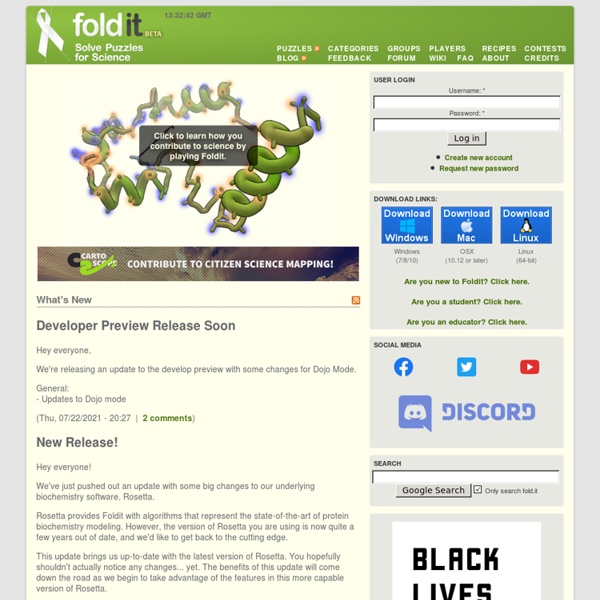



20 Gifs That Teach You Science Concepts Better Than Your Teacher Probably Can These Gifs are astoundingly elegant. 10) Here’s how you convert Cartesian (rectangular) to Polar Coordinates 9) This is how Exterior Angles of Polygons work (they add up to 360 degrees) 8) This is a Hyperboloid made up of straight lines 7) This is also a Hyperboloid of straight lines Why I don’t ‘believe’ in ‘science’ ” ‘I believe in science’ is an homage given to science by people who generally don’t understand much about it. Science is used here not to describe specific methods or theories, but to provide a badge of tribal identity. Which serves, ironically, to demonstrate a lack of interest in the guiding principles of actual science.” – Robert Tracinski begin quote: For some years now, one of the left’s favorite tropes has been the phrase “I believe in science.” Elizabeth Warren stated it recently in a pretty typical form: “I believe in science.
Teaching Science With Lynda: Interactive Science Notebooks Those of you that follow know that I am just crazy about interactive science notebooks. I especially like the use of 3-d graphic organizers or foldables to help students demonstrate their learning in a creative and meaningful way. First I teach an inquiry based lesson, such as a learning cycle. Then I have students choose certain concepts to demonstrate in their notebook. Entries should have the following information: Title (or Focus Question) Date Explorations (What did I do?) Why I Don't "Believe" in "Science" For some years now, one of the left’s favorite tropes has been the phrase “I believe in science.” Elizabeth Warren stated it recently in a pretty typical form: “I believe in science. And anyone who doesn’t has no business making decisions about our environment.” This was in response to news that scientists who are skeptical of global warming might be allowed to have a voice in shaping public policy. So what Warren really means by saying “I believe in science” is “I believe in global warming.” But we owe it to Andrew Yang—a Democratic presidential candidate who just managed to qualify for the televised primary debates by getting more than 65,000 individual campaign contributions—for stating this trope in such a comical form that it gives the game away:
“100 science experiments” in Usborne Quicklinks How to buy this book You can purchase or order books at local bookshops, or online booksellers that deliver to your area. If you have difficulty buying Usborne books where you live, please contact our International sales and marketing department.
No 'lost tribes' or aliens: what ancient DNA reveals about American prehistory Genetics research has transformed our understanding of human history, particularly in the Americas. The focus of the majority of high profile ancient DNA papers in recent years has been on addressing early events in the initial peopling of the Americas. This research has provided details of this early history that we couldn’t access though the archeological record. Ten Websites for Science Teachers We all know that the web is full of excellent web resources for science teachers and students. However, unless you live on the web, finding the best websites can become quite a challenge. This isn't a "Top Ten" list -- instead, it is a list of websites that I either use on a regular basis or just find interesting. From teaching resources for the nature of science and authentic field journals to wacky videos about numbers, I am sure that you will find something in the following list the works for you! Please share your favorite science web resources in the comment section!
Benefits and challenges of incorporating citizen science into university education Abstract A common feature of many citizen science projects is the collection of data by unpaid contributors with the expectation that the data will be used in research. Here we report a teaching strategy that combined citizen science with inquiry-based learning to offer first year university students an authentic research experience. What is science about? / Science / Learning areas / The New Zealand Curriculum Mā te whakaaro nui e hanga te whare;mā te mātauranga e whakaū. Science is a way of investigating, understanding, and explaining our natural, physical world and the wider universe. It involves generating and testing ideas, gathering evidence – including by making observations, carrying out investigations and modelling, and communicating and debating with others – in order to develop scientific knowledge, understanding, and explanations.